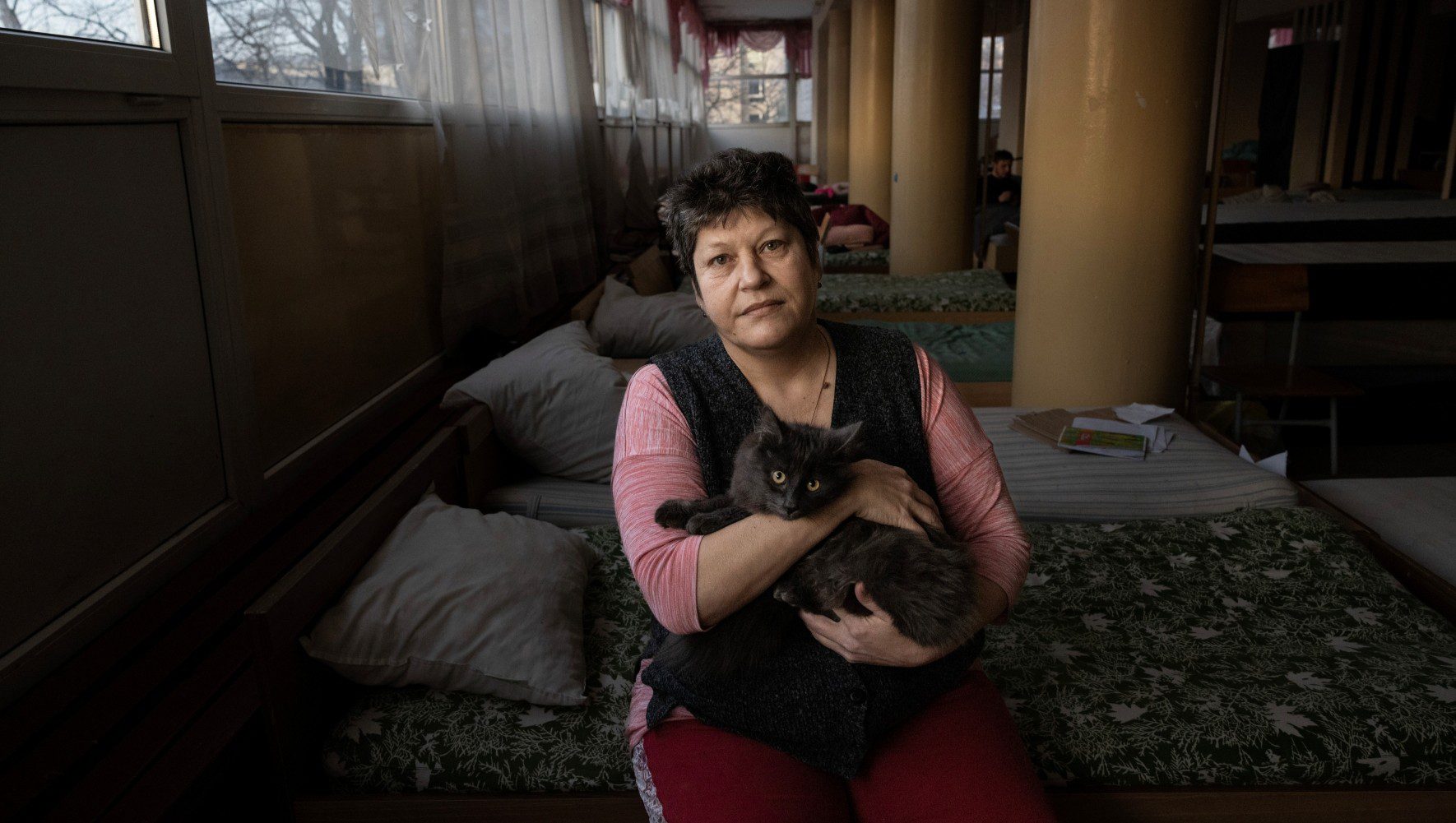A Victory for Displaced People in Ukraine
Jan 15, 2016

Alena Vinogradova, HIAS/Right to Protection Advocacy Expert (R), speaks at a press conference on the eve of the parliamentary vote on Draft Law 2166 in Kiev, Ukraine. Alexandr Galkin (L), head of HIAS’ Right to Protection project, also spoke in favor of the measure.
(HIAS/Right to Protection)
In a recent post about the situation in Ukraine, I described both progress and challenges facing the displaced and stateless there. Today, I am delighted to update you on a new, very positive development.
On November 3rd, the Ukrainian Parliament voted to adopt a measure, Draft Law 2166, to provide much needed protections to the 1.5 million souls displaced within Ukraine by the conflict there. The measure will simplify the procedure for verifying the places of residence of internally displaced persons, allowing IDPs to apply for family reunification and information about missing relatives as well as ensuring much needed assistance is not cut off.
This new law was needed because the first law for IDPs, adopted over a year ago, did not sufficiently protect their rights. Under the old law, only a Ukrainian passport could be used to register as an IDP. Without registering, IDPs cannot work, receive social benefits or be housed in collective centers. Right to Protection, HIAS’ IDP project in Ukraine, found that many IDPs either plan to return or have already returned to their former residence because they did not have suitable living conditions, were unable to find permanent work or any other possibility to gain an income in the place where they were displaced. Fortunately, the new law provides a wider list of IDs which can be used and obliges the Ukrainian government to undertake all possible measures to allow for voluntary return of IDPs to their previous places of residence or for their integration in new communities in Ukraine.
The new law “is not just eight pages of text, but a great relief in the very difficult life of 1.5 million people," said Alexandr Galkin, head of HIAS’ Right to Protection project in Ukraine, referring to the number of internally displaced persons within Ukraine.
The new law also takes into account the needs of foreigners and the stateless. That is critically important for women like Nadia*, a single mother with special needs, who fled from Donetsk in July 2014. Nadia is a Russian citizen, although she has lived in Ukraine for more than 20 years. Under the old law she could not receive IDP status, nor be employed, as she does not have a Ukrainian passport. She fled with her 17-year-old daughter who has a Ukrainian birth certificate, but the daughter was refused a Ukrainian passport because of her mother’s Russian citizenship. The new law extends the definition of an IDP to include foreigners who legally reside in Ukraine and are eligible for permanent residence. Under it, Nadia will finally have an opportunity to obtain an IDP certificate and receive social services.
Another improvement is that internally displaced persons will now be able to obtain a certification of their IDP status that does not expire, which will allow them to receive their pensions and other social benefits without interruption. This is a particularly important change as, under the old law, the State Migration Service forced them to come in person to confirm their location every six months, which elderly and disabled IDPs were not able to manage.
Such was the case of Ilona*, an elderly woman with cancer in the village of Illarionovo. She was not able to confirm her residence due to her physical condition and as a result was deprived of her registration, and thus all social benefits, by the SMS. The new amendment will prevent such issues in the future, as IDPs will no longer be required to continually confirm their location with SMS. It also creates a judicial remedy for the first time, allowing those who are refused IDP status a chance to appeal that decision in court.
On the eve of the parliamentary vote, the HIAS office in Kyiv held a press conference urging support for the measure. “The level of civilization and humanity of our country is measured by the attitude to vulnerable groups. Today, internally displaced persons are some of the most vulnerable in Ukraine. The reality in which IDP's live demands empathy,” Galkin told reporters at that event.
The president of Ukraine unexpectedly vetoed the measure on November 25, 2015, after it was adopted by the Ukrainian Parliament. An amended version of the bill was submitted to Parliament for renewed consideration. Parliament adopted the revised measure on December 24, 2015.
The president signed the revised version of the bill on January 6, 2016. It came into force a week later, on January 13, 2016. The Cabinet of Ministers of Ukraine now has 3 months to harmonize existing laws with the new law and to prepare by-laws to ensure implementation of the newly adopted law.
*Names have been changed to protect the privacy of these individuals.



